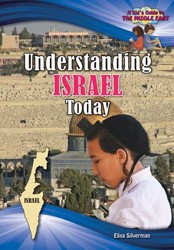What inspires someone to wake up one day and kill their neighbor? How do communities internalize and remember periods of intense violence and hatred? How do those memories shape our identities and relationships going forward? These are the types of questions posed by Hillel Cohen in Year Zero of the Arab-Israeli Conflict: 1929. Cohen focuses on one year, 1929, and the widespread violence that erupted throughout British Palestine. He takes the reader into this critical yet all-too-often overlooked era in the history of the Arab-Israeli conflict, and how the violent events that ensued were described by differing parties, then and now.
As the title indicates, 1929 is, in many ways, “year zero” of the Arab-Israeli Conflict. It is the first period of “Arab” vs. “Jew” major clashes. As a result, Cohen argues, these riots helped found the Yishuv as a single unifying entity, encompassing all Jews and Zionist activity in the region. It is also the first major conflict over the Temple Mount, and ownership of overlapping holy spaces. In total, the intensity of the violence during such a short period of time, the depth of the ideological divides, and the resulting “us vs them” mentality set the stage for future conflict well before 1948.
Cohen does not take the reader on a chronological journey through the events of 1929 and their precursors. He acknowledges this up front, and throughout the text introduces the reader to other sources that can provide that more traditional historical exploration. His work focuses, rather, more specifically on the events of 1929 in the context of historical memory: not just what happened, but how it was described in the media of the time, how individuals involved described it in the immediate aftermath, and how each side internalized a specific historical narrative going forward. Cohen’s extensive use of primary sources draws the reader into the conflict and compels the reader to see each violent incident from a multitude of perspectives. Without in any way justifying the extreme violence or the views of the perpetrators — or attempting to equate or rationalize individual attacks — Cohen successfully helps a contemporary reader understand the complexity of the conflict as it was both experienced and remembered.
Cohen’s book could not be more relevant. We have returned to an era when neighbor kills neighbor, when labels such as “Arab” and “Jew” and “Palestinian” preclude more personal constructs of who we are and in what we believe. We have returned to an era of extreme, unremitting violence, where all sides feel they are under attack, physically or politically. Year Zero is a highly intellectual yet accessible exploration of a formative period in the history of the Arab-Israeli Conflict, and the creation of identity and historical perspective. While not written about contemporary events, its thoughtful, holistic approach sheds great insight on conflict today in origins, practice, and memory.
Related Content:
Joy Getnick, PhD, is the Executive Director of Hillel at the University of Rochester. She is the author of the Melton School of Adult Jewish Learning Beyond Borders: The History of the Arab-Israeli Conflict, has taught history at area colleges, and previously worked in the JCC world and as the director of a teen Israel travel summer program.





